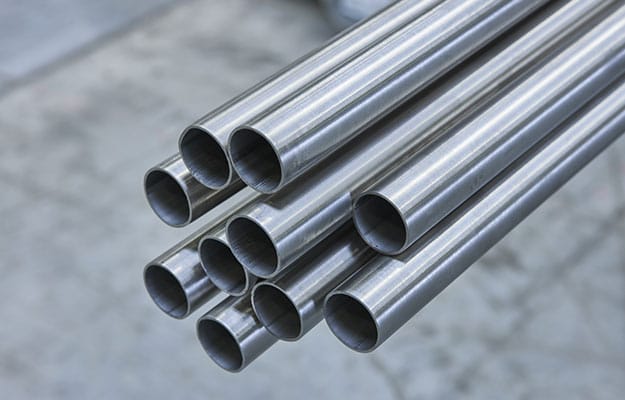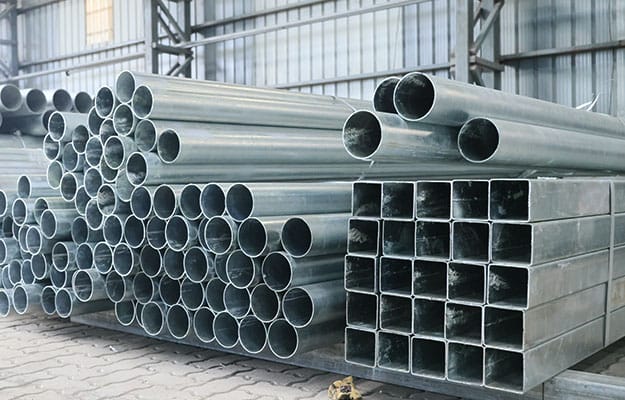For those involved in construction and civil engineering, the importance of keeping galvanised pipes in prime condition cannot be overstated. A blend of proactive measures to detect early signs of pipe corrosion and the application of effective maintenance practices is key to enhancing their functionality and dependability. This guide delves deep into the world of plumbing and maintenance, offering a wealth of knowledge for maintaining these pipes. From spotting early corrosion indicators to implementing sophisticated repair techniques, we will walk you through the critical strategies needed, leading seamlessly into actionable advice for resolving common complications linked with these vital construction elements. Galvanised pipe manufacturers can provide additional insights and products to ensure optimal performance.
Understanding Corrosion in Maintenance of Galvanised Pipes
Why does corrosion happen in galvanised pipes? The culprit is often the breakdown of their zinc coating. Elements such as moisture, oxygen, and exposure to various chemicals can hasten this deterioration, exposing the steel beneath to corrosion. Physical damage like scratches and abrasions can further breach the zinc layer, allowing corrosive elements to attack the steel directly. Pitting, a form of localised corrosion, can precipitate leaks and weaken structures over time.
The type of water coursing through these pipes significantly influences their corrosion rate. Water that is highly acidic or alkaline can react with the zinc coating, accelerating its decay. This degradation can compromise the pipes structural integrity and potentially contaminate the water supply, posing health hazards.
To curb corrosion risks, it is crucial to conduct regular maintenance and inspections of galvanised pipes. Applying anti corrosion treatments and ensuring proper storage and handling can significantly boost their lifespan. Timely inspections facilitate the early detection of corrosion signs, enabling quick interventions to halt further damage.
By spotting corrosion early and implementing effective maintenance strategies, the durability and reliability of galvanised pipes are assured, thus protecting infrastructure and the environment alike.
Identifying Causes of Corrosion in Galvanised Pipes
What leads to the corrosion of galvanised pipes? To safeguard them, pinpointing the primary corrosion triggers is vital. These include
- Zinc Coating Breakdown: Galvanised pipes count on their zinc coating for corrosion defence. Over time, environmental exposure can erode this barrier, leaving the steel prone to corrosion.
- Mechanical Damage: Any physical harm can reveal the steel underneath the zinc layer, making it more susceptible to corrosion.
- Localised Corrosion: In spots where the zinc layer is thin or damaged, pitting can occur.
- Chemical Exposure: Certain chemicals can hasten the zinc layers degradation.
- Water Composition: The water's makeup can greatly affect a pipe's corrosion rate.
Promptly addressing these issues can significantly extend your galvanised pipes service life, ensuring they fulfil their intended role effectively.

Spotting Signs of Corrosion and Damage in Galvanised Pipes
How can you tell if galvanised pipes are beginning to corrode? Key indicators include
- Discoloration: Often the first hint of corrosion.
- Rust Formation: A definitive sign of corrosion.
- Reduced Water Pressure: Corrosion related buildup can hinder water flow.
- Leaks: Weakened pipes are more prone to leaking.
- Bad Taste or Odour: Metallic taste or odd smells indicate water quality issues.
- Changes in Water Color: A sign of advanced corrosion.
- Larger Water Bills: Leaks from corroded pipes can spike water costs.
- Visible Damage: Evident in later stages of corrosion.
Early detection of these signs is crucial for timely maintenance actions, preventing further damage and ensuring the plumbing systems longevity.
Also Read: Navigating the GP and GI Pipe Difference: A Guide for Construction Professionals
Advanced Maintenance Techniques for Galvanised Pipes
What strategies can be employed for the meticulous upkeep of galvanised pipes? Various sophisticated methods are at your disposal to enhance their longevity and ensure peak performance. These strategies encompass
- Effective Surface Treatment and Cleaning for Galvanised Pipes: Attention to surface treatment and cleanliness is pivotal.
- Optimal Cutting, Processing, and Connection Methods: Precise cutting and handling are crucial.
- Connection: Choose appropriate methods like welding, threaded, or flange connections based on pipe specifications. Ensure connections are sealed and tight to prevent leaks.
- Anti-corrosion Treatment of Galvanised Steel Pipes: Key to maintaining structural integrity and extending lifespan.
- Regular Inspection: Regularly check for rust, damage, and connection integrity. Promptly repair any issues to prevent further deterioration.
- Storage: Store in dry, ventilated places away from moisture and sunlight. Maintain a certain distance between pipes to avoid collisions.
- Environmental Protection: Follow environmental regulations when disposing of scrap pipes. Recycle or use professional agencies for disposal.
Your commitment to these maintenance standards lays a solid foundation for additional protective actions, ensuring these key construction elements withstand the test of time.
Sustaining Galvanised Pipes A Conclusion
Mastering the maintenance of galvanised pipes is essential for their durability and functionality in challenging projects. Your engagement in these maintenance practices plays a vital role in extending these components' service life, thus preserving infrastructure integrity. Early corrosion detection coupled with preventive strategies significantly diminishes risks, boosting the lifespan of galvanised pipes. Through disciplined upkeep, the adversities posed by corrosion are effectively managed, keeping your projects resilient and enduring. Steel pipe manufacturers in Chennai, like MKK Metal, can provide valuable products and insights to support these maintenance efforts.

